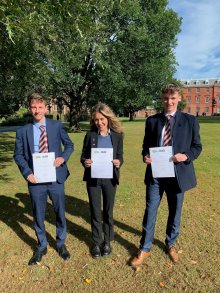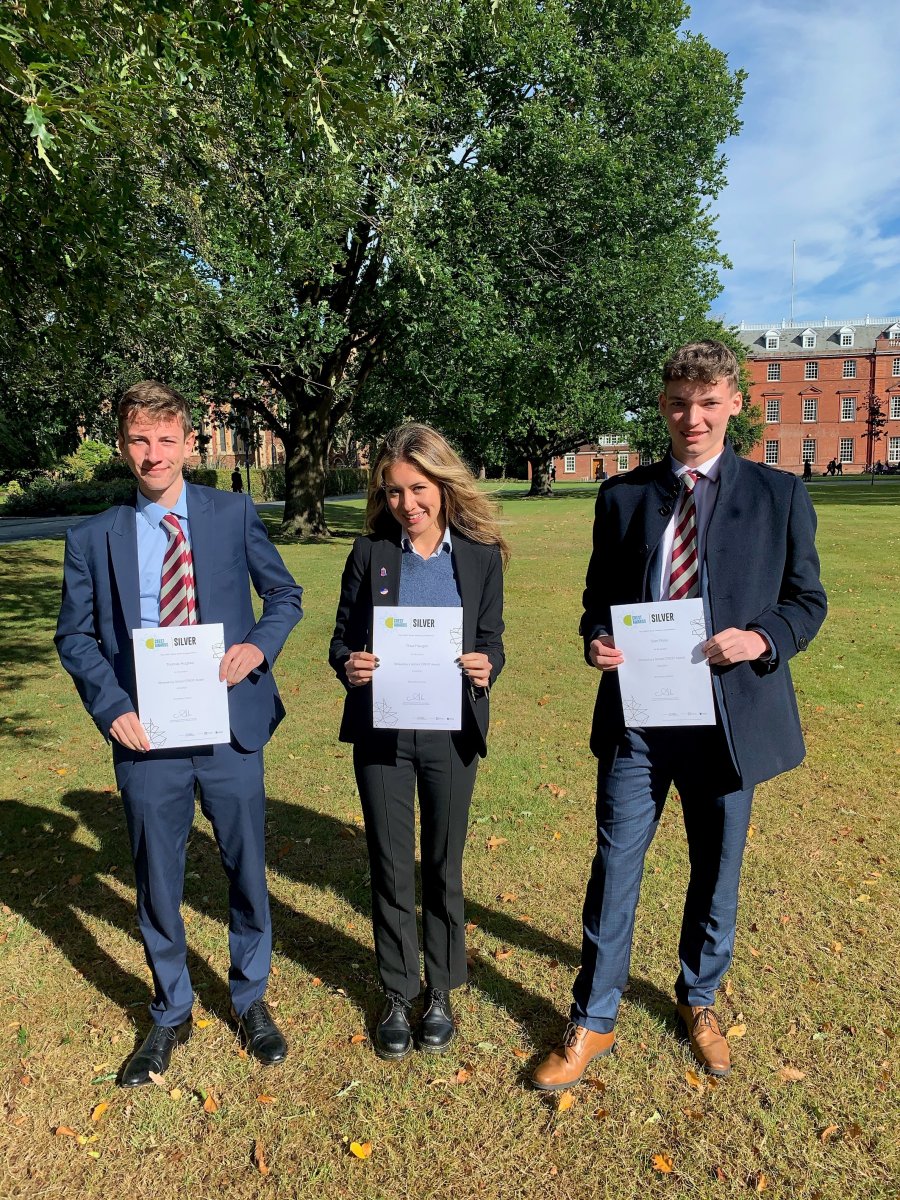Shrewsbury
STEM pupils receive Gold, Silver and Bronze Crest Awards


Congratulations to STEM pupils who have received Crest Awards, a British Association's scheme for STEM project work that inspires young people to think and behave like engineers.
Our Salopians took part in the Bronze and Silver awards; Bronze Awards introduce students to project work empowering them to work like real, technologists, engineers, mathematicians and scientists; and Silver Awards are designed to stretch students and enrich their STEM studies.
Both awards ask that students partake in research projects, with Salopians researching topics such as Aeronautical problem solving, Investigation into decarbonisation in the Aviation Industry, Product Design with Thermochromic Smart Materials, End of life materials, and Safety with use of Everyday Products.
Bronze Crest Award
- Giles B (Rb, LVI)
- William S (R, LVI)
- Saxon S (S, UVI)
- Siddharth B (Rb, LVI)
- Harry M (Rb, LVI)
Silver Crest Award 30+hours
With notable achievements:
- Thea H (MSH, UVI)
- Thomas Hughes (S, LVI)
- Sam Ross (S, UVI)
Silver Crest Winners, Thomas, Thea and Sam
Thea H (MSH, UVI) said: “I created a research proposal and a 10-minute presentation, pitching it to Leanne Mee of The STEM Workshop and MCMT, The Marches Centre of Manufacturing with links with Radius Aerospace. I was in contact with the General and Technical Managers of company Radius Aerospace, a leading supplier of civil exhaust systems to the aerospace market, to whom I presented my initial ideas and receiving feedback on, which assisted my research proposal.”
Another pupil to receive a Crest Award is Ellie L (M, UVI), who independently achieved an impressive Crest Gold Award at Harper Adams University. Ellie completed over 70 hours of independent research, including two weeks of laboratory work in the summer holiday, which was required to qualify for this prestigious award.
The work is written up and submitted as a report and the key findings are given as a presentation at a colloquium. Ellie chose to investigate the ‘environmental and health impacts of plastic alternatives. Plastic food packaging is popularly understood to be more hygienic that alternatives and this is what Ellie focused her laboratory work upon. She used glass, timber, recycled cardboard, plastic, aluminium, copper and stainless-steel surfaces and investigated the persistence of common microbes after washing and across certain time frames.
Her findings were extremely interesting although ideally she would have liked to have had the time to do many repeats, all of the plastic alternatives apart from the glass were hygienic and, in particular, she felt that wood, bamboo or metal surfaces would be advantageous for food preparation and packaging from a health and hygiene perspective when compared with plastic.
Most recently Ellie presented to a panel at Harper Adams University and answered questions from the audience with confidence and it was clear just how much she has learnt from this experience.


.jpg&command_2=resize&height_2=85)












.png&command_2=resize&height_2=85)




.jpg&command_2=resize&height_2=85)

